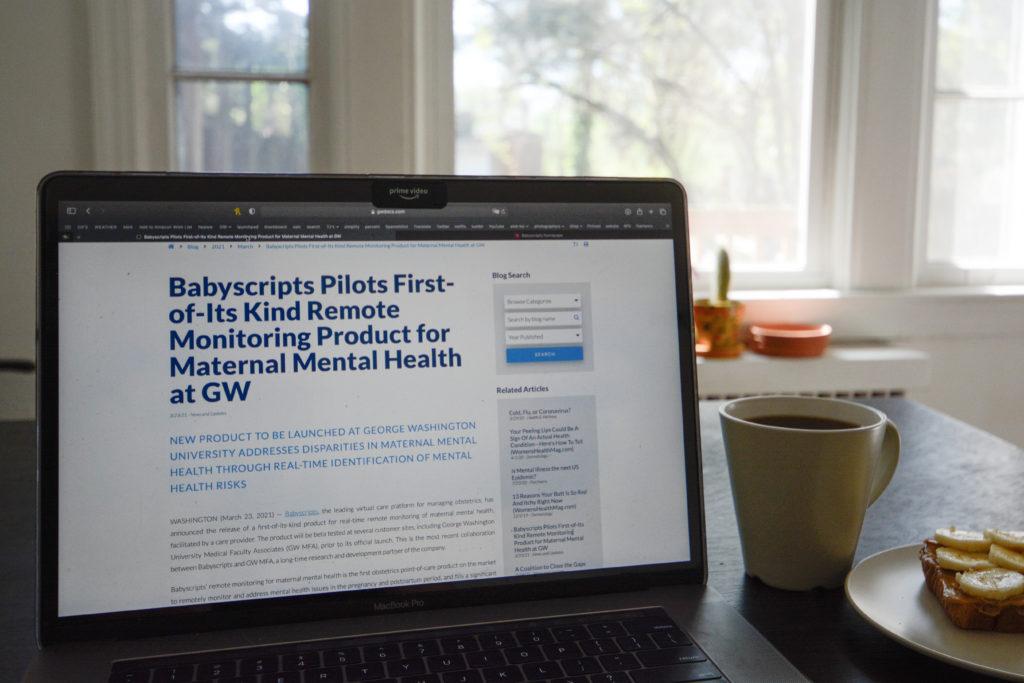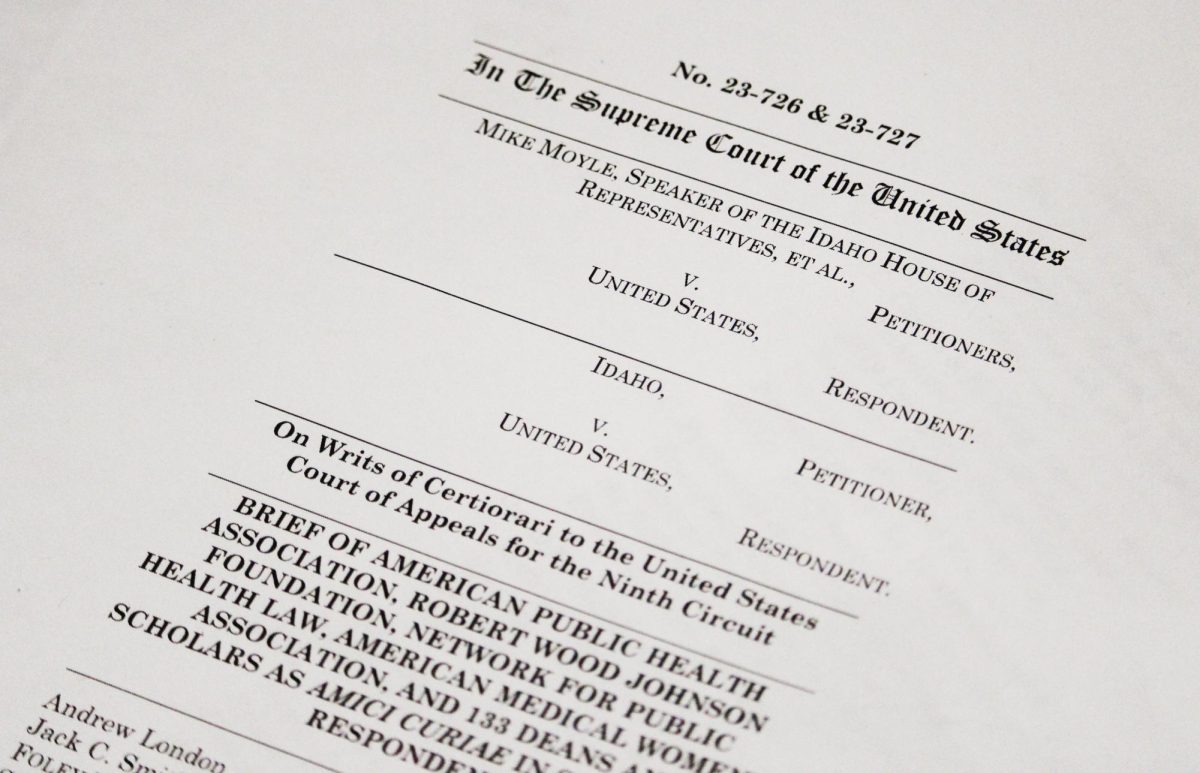The Medical Faculty Associates will participate in a trial of an app for new mothers to track their mental health and expand accessible medical resources for pregnancy and childbirth.
Officials announced last month that Babyscripts, a company that conducts research and develops internet-connected monitoring devices and apps for maternal health, is developing the module to aid new mothers. Experts in maternal mental health said mothers could use the app to screen for symptoms of mental illness like depression and physical symptoms like changes in blood pressure, but the technology should also include a feature to connect patients to mental health care providers if any symptoms become severe.
Kathryn Marko, an assistant professor of obstetrics and gynecology at the School of Medicine and Health Sciences, said she hopes the product will enable new mothers to take care of their mental health and discuss symptoms with their health care providers.
About 13 percent of women after childbirth and 10 percent of pregnant women worldwide face mental health issues like depression, according to the World Health Organization. These mental health issues can cause mothers to eat less, stop taking care of themselves and have suicidal thoughts, according to WHO.
“Maternal mental health is a critical component of healthy pregnancies,” Marko said in an email. “By supporting pregnant patients in this new way, we aim to empower them to take note of their mental health and facilitate ways to discuss this with their providers.”
Marko said the MFA’s trial will last one year, and developers will incorporate the module, which includes education on mental health and online screening forms, into the current Babyscripts app that measures blood pressure and weight for existing patients.
“The module will add a significant amount of patient education to the app regarding maternal mental health,” she said. “It has all been vetted by MFA physicians and midwives. Additionally, it will offer a way for patients to fill out mental health screening forms in the comfort of their own homes. This allows real-time evaluation and provider monitoring of maternal mental health.”
Marko added that she hopes the technology will allow health care providers to intervene early if patients start to show symptoms of mental illness like anxiety and depression.
“Maternal mental health is one of the most common and critical complications of pregnancy,” Marko said. “By utilizing technology, we can empower pregnant patients with resources, vetted by their providers, at their fingertips.”
Experts in maternal health said prenatal and new mothers often feel that their mental health issues aren’t normal because of a stigma surrounding mental health care, which prevents them from seeking medical help. They said the Babyscripts app could allow mothers to more willingly share their mental health symptoms in private.
Pamela Geller, an associate professor of obstetrics and gynecology and public health at Drexel University, said doctors have increased their attention to the mental health treatment of pregnant mothers in recent years to prevent symptoms and disorders like depression from developing into larger issues like suicidal thoughts.
She said these symptoms fall under an “umbrella term” called Perinatal Mood and Anxiety Disorders, which includes depression, anxiety and bipolar disorder in perinatal mothers – mothers who will give birth soon or recently gave birth.
Geller said mothers experience drastic hormonal changes during and after pregnancy, which are associated with baby blues – feelings of sadness that occur in the two weeks after pregnancy. She said mental health problems in mothers may also arise due to changing relationships and time commitments after childbirth.
“Even if they have other children, those relationships change when the baby is born,” Geller said. “So there’s a lot of reasons why, other than hormones, that there’s a big change for women. Also, like that there’s a lot of priorities that women are juggling. They have less time for self-care.”
Geller said the Babyscripts app is a “great idea” that would be easy to use through a mobile device. She said if the app identifies health issues in mothers, they should be connected to follow-up services like treatment that can assess these health problems and suggest the appropriate response.
“That there would be mental health symptoms also tracked, as a psychologist, I think is great,” Geller said. “I think that some of the issues there are just how it’s used and making sure that there’s follow-up similar to if women are screened during appointments.”
Nancy Byatt, an associate professor of psychiatry, obstetrics and gynecology and population and quantitative health sciences at the University of Massachusetts Medical School, said screening for signs of mental illness is generally more difficult than connecting patients with a health care provider.
“It’s good to screen, and it’s good to track,” she said. “The challenge is that screening has to be followed up by a system in place to ensure that women get care, which is easier said than done.”
Byatt said barriers to mental health care, like the stigma around mental illness and access to care, have increased for new mothers during the COVID-19 pandemic, with many of them going through the postpartum period in isolation. She said mental health care providers suggest reaching out to friends and family to combat symptoms of mental illness, which can be difficult in isolation.
“There’s always been a challenge with accessing mental health care,” she said. “In general, there’s even more challenges for individuals who are pregnant and postpartum, for them to access mental health care, and then all of these barriers and these challenges with access have been heightened during the pandemic.”








